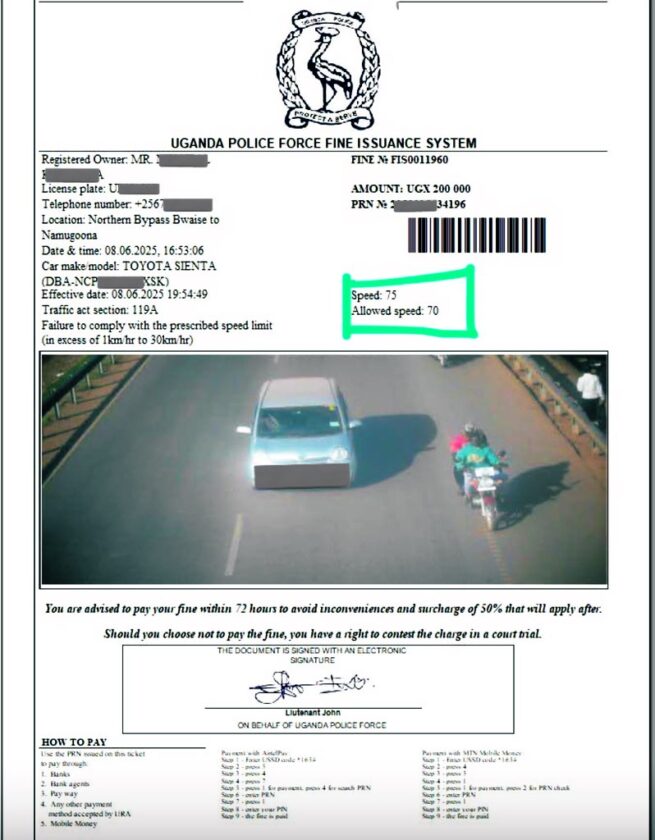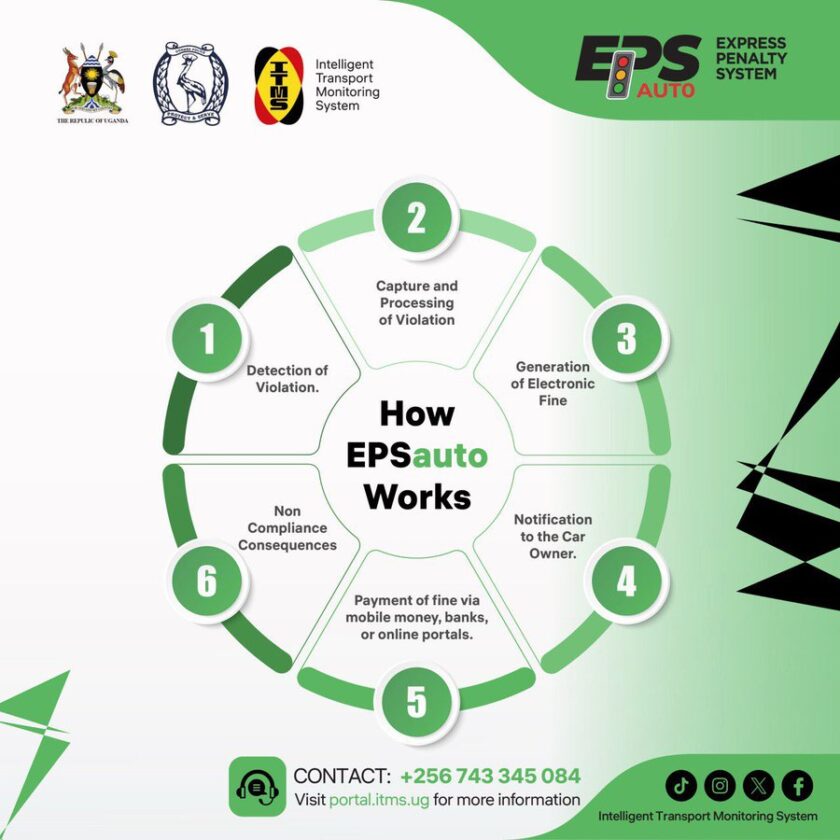Uganda’s Electronic Traffic Fines System Sparks Motorist Outrage Over “Excessive” Penalties
Government defends EPS as essential for road safety while drivers cry foul over steep fines and poor signage
KAMPALA – Uganda’s newly implemented Electronic Penalty System (EPS) has triggered widespread protests from motorists who say the automated traffic enforcement system is hitting them with unreasonably high fines while failing to provide adequate warning signs or public education.
The controversy exploded on social media after Gilbert Asasira shared his experience of receiving three separate speeding tickets totaling Shs 1.4 million during a single day’s journey from Mpala to Mukono. The fines automatically escalate to Shs 2.1 million if not paid within three days.
Screenshots posted by Asasira show he was ticketed for driving 58 km/h and 63 km/h in zones with 30 km/h speed limits – the standard restriction for urban roads under Uganda’s Traffic Regulations Schedule 2.

Speed Limits Creating Confusion
The regulatory framework sets maximum speeds at 30 km/h for most vehicles in urban areas and 50 km/h on highways passing through urban zones. However, motorists complain these limits are often unmarked or poorly indicated along major routes.
“Where are the road signs? How are we supposed to know these limits exist?” questioned one frustrated driver on social media platforms where the debate has intensified.
The absence of clear signage has become a central grievance, with many arguing that effective traffic management requires visible warnings before enforcement begins.

Mixed Public Response
While some motorists express sympathy for those hit with hefty fines, others support the strict enforcement. Social media user Nantambi Namusisi dismissed complaints, stating: “I don’t feel any remorse for you people. Let’s obey the rules. You follow the law in other countries, do the same here.”
The polarized response reflects broader tensions about how traffic laws should be implemented in Uganda’s evolving urban landscape.
Road Safety Crisis Drives Policy
The Ministry of Works and Transport justifies EPS as a necessary response to Uganda’s escalating road safety emergency. Official statistics paint a grim picture: traffic crashes surged 16% from 20,394 in 2022 to 23,608 in 2023, with fatal accidents reaching 4,179 cases.
The human cost extends beyond statistics. Road crashes now rank as the primary cause of death among Ugandans aged 5-29, while serious injuries exceeded 12,000 last year alone.
Economically, the crisis drains approximately Shs 4.4 trillion annually from Uganda’s economy – equivalent to 5% of GDP, according to UN Economic Commission for Africa data.
System Adjustments Promised
Responding to mounting criticism, Works Ministry communications officer Allan Ssempebwa announced modifications to address clarity concerns. Updated EPS tickets will display standardized date formats, detailed offense descriptions, and show both actual driving speeds and posted limits.
“These updates are meant to ensure motorists have full clarity into the details of each offence,” Ssempebwa explained, urging continued responsible driving.
Reform Demands Grow
Despite promised improvements, pressure continues building for more substantial changes. Motorists are demanding:
- Extended payment periods from 3 to 28 days
- Comprehensive public education campaigns before enforcement
- Penalty amounts adjusted to reflect economic realities
- Improved road signage and marking systems
Critics warn that without addressing these concerns, EPS risks being viewed as a revenue-generation scheme rather than a genuine safety initiative.

